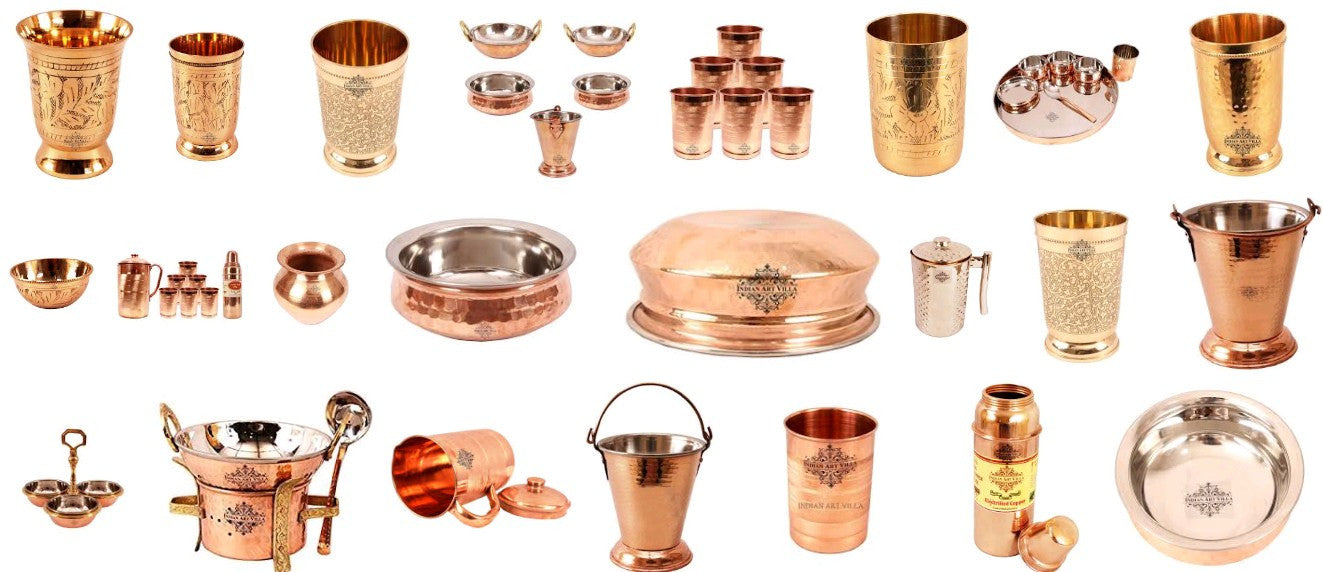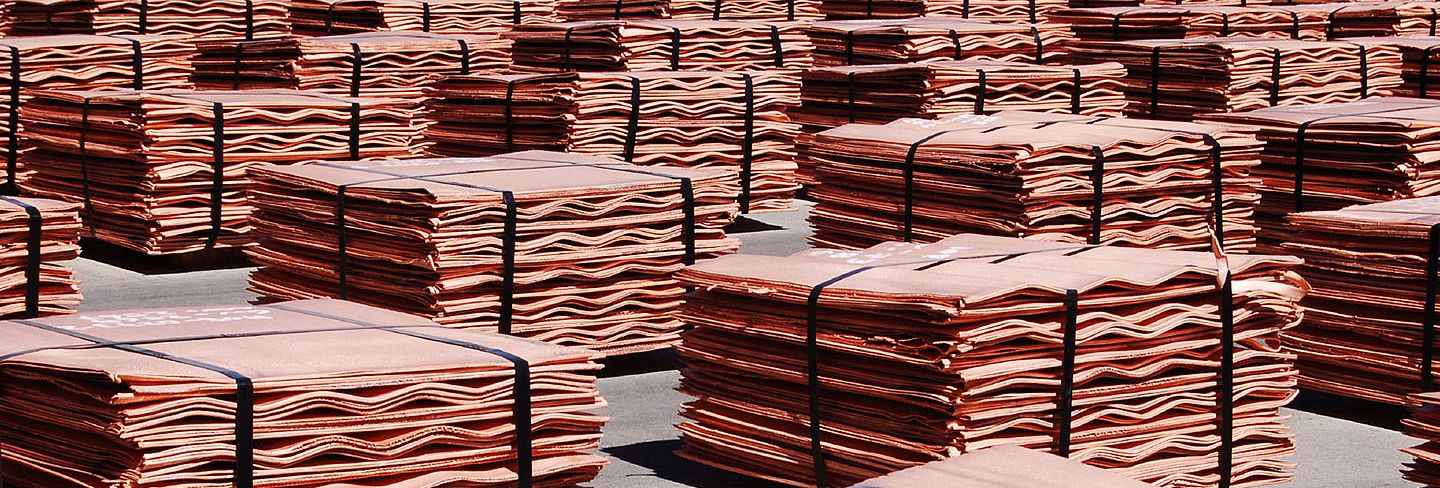Discover the Benefits of Using High-Quality Copper Products for Home and Industry
Discover the Benefits of Using High-Quality Copper Products for Home and Industry
Blog Article
Checking Out the Diverse Applications of Copper Products in Modern Industries
Copper products have developed themselves as vital elements across a myriad of modern industries, largely as a result of their exceptional conductivity, pliability, and resistance to deterioration. From enhancing the efficiency of electrical systems to playing a critical function in renewable resource innovations, the adaptability of copper appears. Furthermore, its recyclability placements it as a sustainable choice in production and electronic devices. As markets increasingly prioritize technology and sustainability, the varied applications of copper necessitate a closer examination, especially concerning their prospective influence on future environmental methods and technological improvements.
Electrical Applications of Copper
Copper is a necessary product in the electric market, making up about 60% of the complete need for non-ferrous steels around the world - Copper Products. Its remarkable electric conductivity, which is virtually twice that of aluminum, makes it the recommended selection for a wide range of electrical applications. From electrical wiring systems in domestic and commercial buildings to high-voltage power transmission lines, copper guarantees effectiveness and reliability in power shipment
In addition to wiring, copper is essential to the manufacturing of electrical components such as transformers, generators, and electric motors. These components leverage copper's thermal conductivity and pliability, vital for heat dissipation and effective efficiency. Furthermore, copper's resistance to rust enhances the life-span and longevity of electric systems, making it a cost-effective remedy in the long-term.
The growth of renewable resource resources, such as solar and wind power, has even more raised the need for copper in electrical applications. As sectors change in the direction of sustainable power solutions, copper's role comes to be also extra important. On the whole, the versatility and performance qualities of copper solidify its status as a cornerstone material within the electrical market, driving development and efficiency across various applications.
Plumbing and Piping Solutions
In modern-day pipes systems, the option of products substantially influences both performance and durability. Copper has emerged as a favored alternative as a result of its one-of-a-kind residential properties, consisting of corrosion resistance and antimicrobial characteristics. These attributes make certain that copper piping continues to be sturdy and safe for transferring drinkable water, a vital factor to consider in household and commercial applications.
One of the crucial advantages of copper in plumbing is its capability to hold up against high temperature levels and pressures, making it ideal for a selection of applications, from warm water systems to heating and cooling down networks. Furthermore, copper's flexibility enables simpler installation in intricate piping formats, reducing the risk of leaks and failures.
Another noteworthy benefit is copper's lengthy life expectancy, typically surpassing 50 years with proper maintenance. This durability not only reduces replacement costs yet also contributes to lasting practices by decreasing waste. Copper's recyclability straightens with contemporary ecological standards, advertising a circular economic situation within the pipes industry.
Copper in Renewable Resource
The versatility of copper expands past plumbing applications, playing an essential role in the renewable power industry. In solar panels, copper is used in photovoltaic cells and circuitry, helping with effective energy conversion and transmission.

Moreover, as the worldwide demand for electrical automobiles (EVs) increases, copper's function in battery systems and charging framework recommended you read ends up being also more substantial. The product's capacity to carry out electrical power effectively is integral to the performance of EV batteries, boosting variety and charging speed.
Copper's Duty in Electronic devices
Electronics producing counts greatly on copper's phenomenal residential properties, especially its high electrical conductivity and thermal performance. These characteristics make copper an ideal choice for a wide variety of digital elements, consisting of adapters, motherboard, and wiring. description The steel's ability to efficiently transmit electrical signals makes sure very little power loss, which is essential in high-performance digital tools.
In addition, copper's thermal conductivity plays a significant duty in heat dissipation, securing sensitive components from overheating. This is especially vital in modern electronic devices, where small layouts bring about raised warmth generation. Copper is likewise favored for its malleability and ductility, allowing it to be quickly shaped into detailed styles that satisfy the needs of advanced digital applications.
With the rise of customer electronics, telecommunications, and electrical vehicles, the need for copper in the electronic devices industry continues to grow. Thus, copper stays a cornerstone material in the ever-expanding field of electronic devices.
Ingenious Utilizes in Manufacturing

One significant application remains in additive manufacturing, where copper-based materials are used in 3D printing procedures. This permits the creation of complex geometries and light-weight components, particularly in the aerospace and vehicle sectors. Furthermore, copper's thermal conductivity makes it an ideal option for warmth exchangers, boosting performance in industrial cooling systems.
Additionally, the surge of clever manufacturing has actually seen the unification of copper in IoT devices, where its conductive capabilities support sophisticated picking up technologies. In the realm of renewable resource, copper is crucial in the manufacturing of solar panels and wind generators, promoting more efficient power conversion and distribution.
As sectors pursue sustainability and technology, copper's versatility and performance continue to position it as a crucial product, driving advancements in production and adding to the advancement of smarter, a lot more efficient items.
Final Thought
In recap, copper products demonstrate amazing versatility throughout different contemporary markets. Copper Products. Their exceptional conductivity enhances electrical applications, while corrosion resistance makes sure dependability in plumbing. The essential role of copper in renewable power and its important feature in electronic devices highlight its relevance ahead of time lasting practices. In addition, cutting-edge uses in manufacturing emphasize copper's adaptability and withstanding importance. Collectively, these applications highlight copper's important payment to technical progression and commercial effectiveness in contemporary culture.
From enhancing the performance of electric systems to playing an important role in eco-friendly energy modern technologies, the versatility of copper is evident. As industries increasingly prioritize innovation and sustainability, the varied applications of copper necessitate a closer examination, especially concerning their potential effect on future environmental techniques and technical advancements.
The growth of sustainable energy sources, such as blog here solar and wind power, has additionally increased the demand for copper in electrical applications. Generally, the flexibility and efficiency attributes of copper strengthen its standing as a cornerstone product within the electric market, driving advancement and performance throughout numerous applications.
The versatility of copper extends beyond pipes applications, playing an essential role in the renewable energy sector.
Report this page